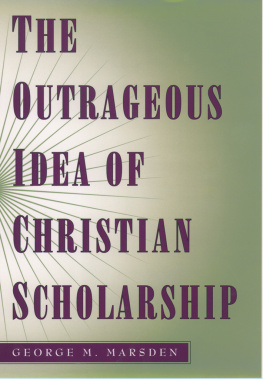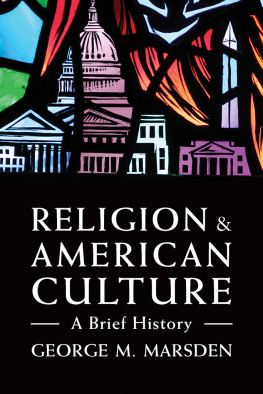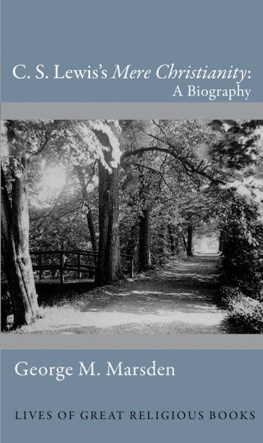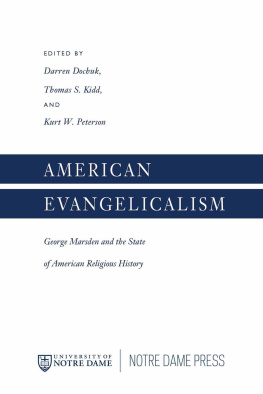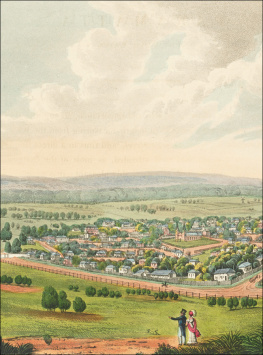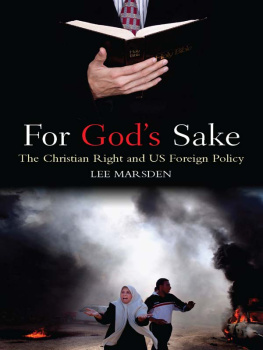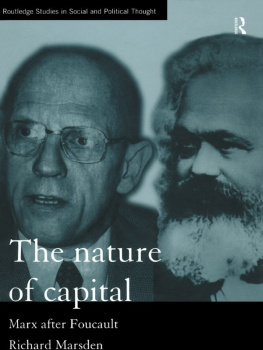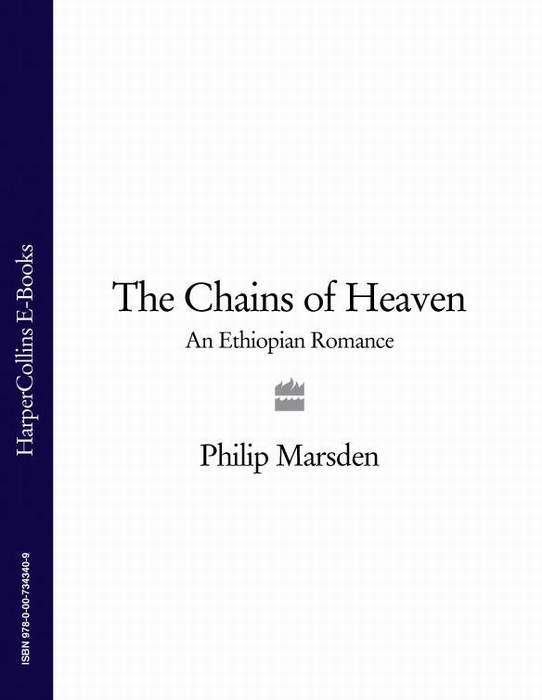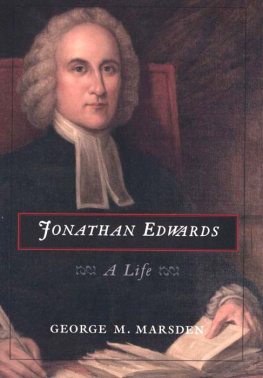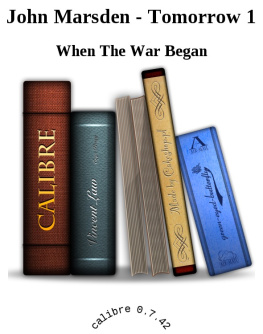The Outrageous Idea of Christian Scholarship
GEORGE M. MARSDEN
OXFORD UNIVERSITY PRESS
New YorkOxford
OXFORD UNIVERSITY PRESS
OxfordNew York
Athens Auckland Bangkok Bogota Bombay
Buenos AiresCalcuttaCape Town Dares Salaam
DelhiFlorence Hong KongIstanbulKarachi
Kuala Lumpur MadrasMadrid Melbourne
Mexico City NairobiParisSingapore
Taipei Tuk:yo Turonto
and associated companies in
BerlinIbadan
Copyright 1997 by George M. Marsden
First published by Oxford University Press, Inc., 1997
First issued as an Oxfurd University Press paperback, 1998
Oxford is a registered trademark of Oxford University Press
All rights reserved. No part of this publication may be reproduced, stored in a retrieval system, or transmitted, in any form or by any means, electronic, mechanical, photocopying, recording, or otherwise, without the prior permission of Oxford University Press.
Library of Congress Cataloging-in-Publication Data
Marsden, GeorgeM., 1939
The outrageous idea of Christian scholarship I George M. Marsden.
p.cm.Includes bibliographical references and index.
ISBN-13 978-0-19-512290-9 (Pbk.)
1.Education {Christian theology).
2.Education, HighAims and objectives-United States.
I.Tide.
BT738.17.M37 1996 377-dc20 96-22280
In Memory of
George A. Rawlyk
1935-1995
He showed us not only how to be a Christian scholar,
but also how to live like one.
Preface
In The Soul of the American University: From Protestant Establishment to Established Nonbelief (Oxford Univ. Press, 1994), I explored how and why American university culture, which was constructed largely by Protestants, has come to provide so little encouragement for academically rigorous perspectives explicitly shaped by Christian or other religious faith. One theme of The Soul of the American University is that the century-long process of dismantling the old Protestant establishment was, among other things, an understandable way of addressing problems of equity in an increasingly pluralistic society. However, as I argued in a "Concluding Unscientific Postscript,"the dominant university culture has overcorrected to the point that expressions of religious perspectives are liable to be considered inappropriate or offensive.
As might be expected, that "Postscript;' in which I stepped into a more prescriptive role, has drawn the attention of critics. In particular, they have asked what I had in mind by "Christian scholarship,"an idea that I claimed had relevance to much of academic life. Many people find this idea strange unless it refers only to theology or to study about religious topics. Outside of that, they have no idea what it might mean. Reviewers have also raised a number of helpful questions about the appropriateness of introducing explicitly faith-informed perspectives into mainstream academia.
I am grateful to all those who have responded to my proposal and for the present opportunity to explain more fully what I have in mind. I am particularly grateful to those who have spoken out frankly and raised some hard questions. I appreciate the good spirit of the debate and I hope I have answered their questions, at the least, fairly. Even though I use some of their comments as points of departure, the goal of this volume is not primarily to respond to critics. Rather, the goal is to take a step toward clarifying what the ancient enterprise of relating faith and learning might mean in the academy today.
I also want to thank my many friends who have helped me with this volume. These include many friendly respondents at numerous lectures, conferences, and symposia. Especially, however, I want to thank those friends who took the time from extremely busy schedules to read and comment on the entire manuscript. These include Michael Beaty, Paul Kemeny, Mark Noll, James Turner, and John Van Engen. Lucie also gave me some good advice and her love and good humor have once again been more valuable than I can possibly express.
Cynthia Read again has gone beyond the duties of a senior editor in providing needed stylistic editing. I am grateful also to Stephanie Sakson for copyediting and to Karin Commeret for proofreading.
I am continually grateful to the McAnaney family for the Francis A. McAnaney Chair, which has been a source of ongoing support for this work. I am also grateful to the administration of the University of Notre Dame and to many congenial colleagues and graduate students.
Parts of this material were presented as the 1995 Walter Pope Binns Lectures at William Jewell College and I am grateful to my hosts there for their hospitality and support. Chapter 3, "Christian Scholarship and the Rules of the Academic Game," originated as a paper presented at a conference on advocacy and scholarship sponsored by the Institute for the Study of American Evangelicalism. I am grateful for the comments I received at that time and for permission to publish a version of the argument here. The original together with other papers from that conference are being published as Religious Advocacy and the Writing ef American History (Grand Rapids: William B. Eerdmans, 1997). That volume provides some valuable discussion of the broader issue of advocacy, especially in relation to religious faith.
Contents
Chapter One
Why Christian Perspectives Are Not Welcomed
Chapter Two
The Arguments for Silence
Chapter Three
Christian Scholarship and the Rules of the Academic Game
Chapter Four
What Difference Could It Possibly Make?
Chapter Five
The Positive Contributions of Theological Context
Chapter Six
Building Academic Communities
The Outrageous Idea of Christian Scholarship
Contemporary university culture is hollow at its core. Not only does it lack a spiritual center, but it is also without any real alternative. Although many of the most prominent academics are preoccupied with politics, they are unable to produce a compelling basis for preferring one set of principles over another. On the contrary, while they tend to be dogmatic moralists, many also espouse theories that would undermine not only traditional moral norms, but their own as well. Others, probably most academics, do not even try to deal with first principles. Knowledge today is oriented increasingly toward the practical; at the same time, in most fields the vast increases in information render our expertise more fragmentary and detached from the larger issues of life. Although the university research ideal apparently works well enough in the sciences and technology, it is not at all clear why the same principles should be normative for the study of human society and behavior. Even the liberal arts are havens for fads that often obscure what was originally attractive about their subjects. "Wisdom" is hardly a term one thinks of in connection with such studies, nor with our system of higher education generally.
The proposal set forth in this volume will not solve all these problems, but it will help many people draw on some rich and largely untapped resources in addressing them. The proposal is that mainstream American higher education should be more open to explicit discussion of the relationship of religious faith to learning. Scholars who have religious faith should be reflecting on the intellectual implications of that faith and bringing those reflections into the mainstream of intellectual life. Although scholars of no faith or of other faiths may strongly disagree on the particular issues involved, all should participate on equal terms in academic dialogue.

